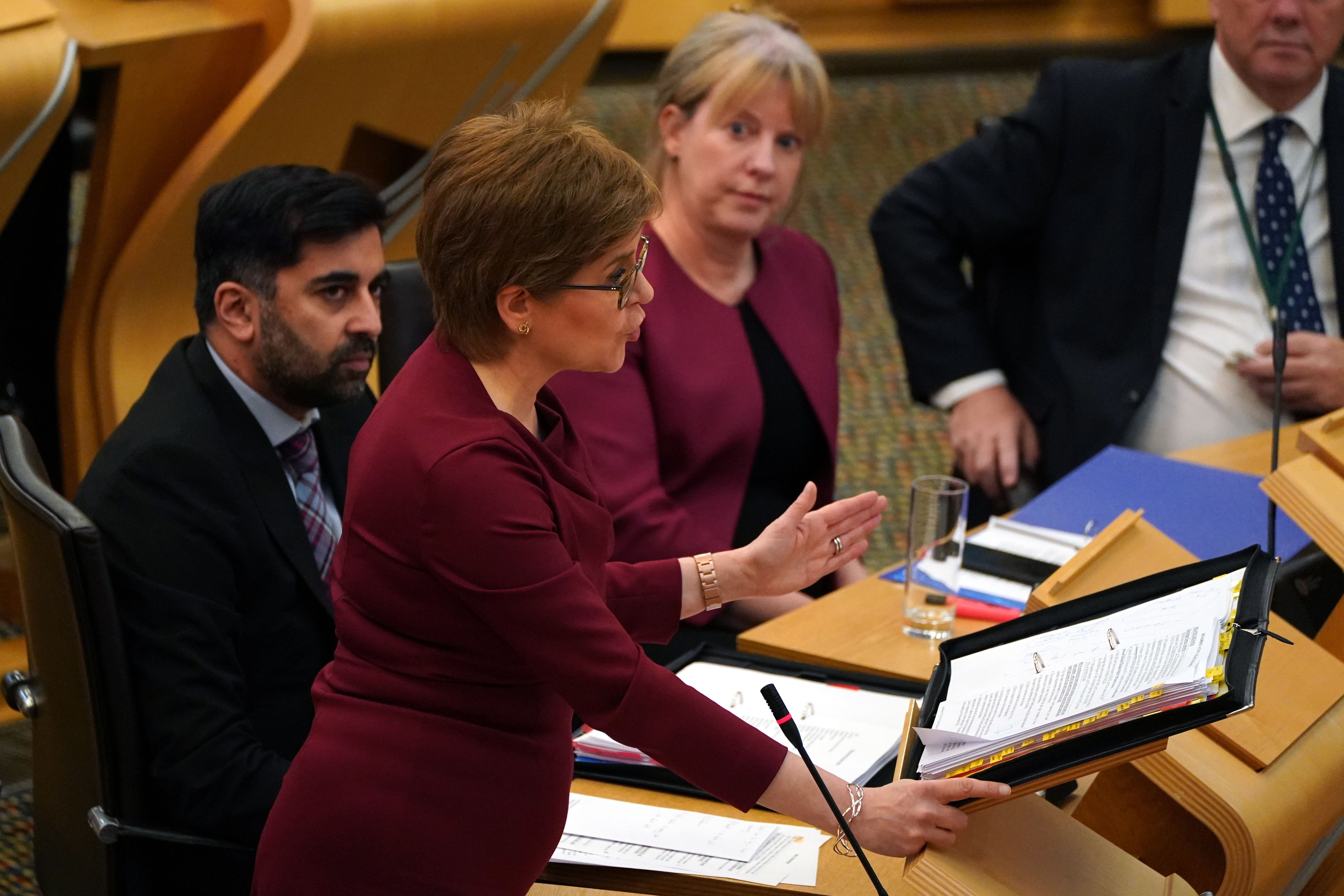Strep A: ‘No shortage’ of antibiotics in Scotland as Sturgeon issues warning
Scotland’s First Minister said the situation was being monitored ‘very closely’

Scotland is not facing a shortage of antibiotics needed to treat Strep A, as Nicola Sturgeon stressed there was “no room for complacency” in fighting the condition.
Across the UK at least 15 children have died from complications caused by the Strep A infection – although no fatalities have been reported in Scotland.
Health Secretary Humza Yousaf said on Thursday there was no shortage of the drugs needed to treat the illness and was also clear that the number of cases of the infection being seen in Scotland is “not unusual”.
Public Health Scotland (PHS) has stressed that, while Group A Streptococcal (GAS) infections, including scarlet fever, are common, the more serious Invasive Group A Streptococcal (IGAS) infections – when bacteria get into the bloodstream – are rare.
A total of 13 IGAS cases involving children under the age of 10 were reported to PHS between the start of October and December 5.
First Minister Nicola Sturgeon told MSPs the issue would be discussed at the next Scottish cabinet meeting on Tuesday, assuring worried Scots the situation was being monitored “very closely”.
“Sadly as we know a number of children in England and Wales have died from Invasive Group A Strep infections and our thoughts will be with their families,” Ms Sturgeon said during First Minister’s Questions on Thursday.
“While increased levels of infection have been seen in Scotland, current numbers are not particularly exceeding previous spikes and we have had so far no deaths of children.
“However, a total of 13 Invasive Group A Strep cases in children under 10 were reported to Public Health Scotland between the start of October and December 5.
“The majority of these are mild, and can be treated with penicillin, however there is no room for complacency and we will continue to monitor the situation very closely.”
Meanwhile, Mr Yousaf said that, although the number of GAS cases is expected to rise, parents should contact their GP if their child becomes unwell and they will get “the treatment that’s required”.
The Health Secretary, speaking on BBC Radio Scotland’s Good Morning Scotland programme, said: “There have been 1,195 Group A Strep infections since the beginning of October – that’s the PHS figure in Scotland. – but that’s not unusual.
I’ve spoken to the Chief Pharmaceutical Officer and had guarantees around the stock and supply, so we’ll keep a close eye on it but there’s no supply issues on antibiotics
“We do expect an increase in the coming weeks, but it’s really important to say that the vast bulk of those 1,195 cases will present as mild illness that can be treated, so we want to just get the balance right between absolutely telling parents the signs and symptoms to look out for and also just say there’s no need to panic if your child is unwell, signs and symptoms, phone your GP and you’ll get the treatment that’s required.”
Asked whether he is concerned about running out of antibiotics he said: “No, there’s no shortage of supply.
“I’ve spoken to the Chief Pharmaceutical Officer and had guarantees around the stock and supply, so we’ll keep a close eye on it but there’s no supply issues on antibiotics.”
UK Health Secretary Steve Barclay also insisted on Wednesday that the level of supply of the necessary antibiotics was “not a concern at the moment”.
But the Association of Independent Multiple Pharmacies, which represents around 4,000 pharmacies, has said many are struggling to source the stock they need.
Dr Nick Phin, director of public health science at PHS, stressed the importance of good hygiene.
“The bacteria causing scarlet fever, and related infections, is usually found in the throat and on the skin. We would, therefore, encourage adults to ensure children wash their hands frequently with soap and water, and to cover their mouth and nose with a tissue when they cough or sneeze, and then put the used tissue in the bin.
“These simple actions can help to reduce the spread of common infections like Group A Strep.”
He added: “If your child is showing signs of scarlet fever, please seek advice from a health professional as most cases respond promptly to early treatment with antibiotics.”
Symptoms of scarlet fever include headaches, a sore throat, high temperature and raised pink/purple spots that join up to produce a skin rash, which feels like sandpaper to the touch.



Bookmark popover
Removed from bookmarks